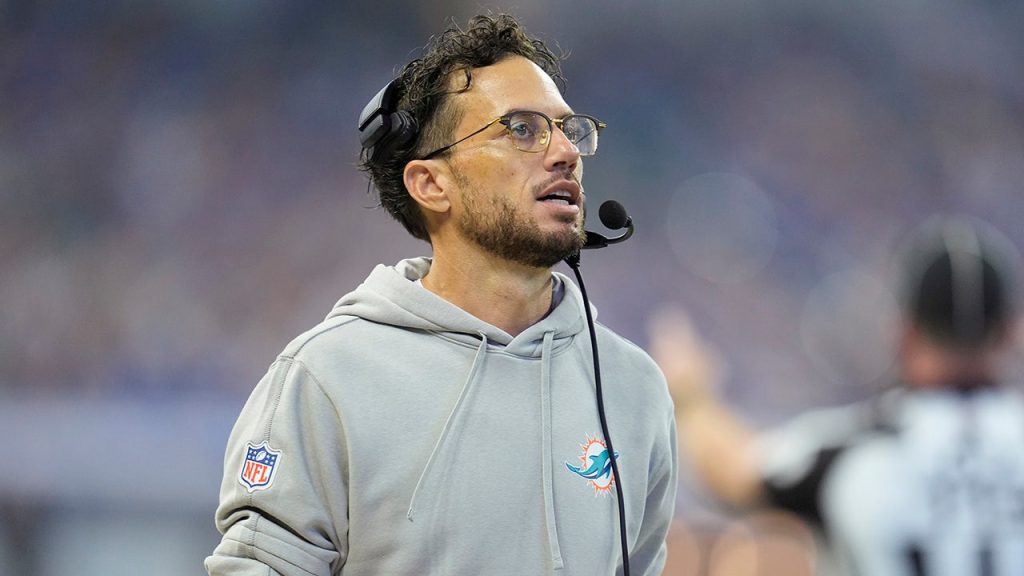Mike McDaniel’s tenure as head coach of the Miami Dolphins, while initially marked by promise and a playoff berth in his first season, has encountered its first significant hurdle with the team’s failure to qualify for the postseason in 2023. This setback has prompted McDaniel to engage in some critical self-reflection, particularly regarding his approach to player discipline, a topic that dominated his final media availability before the team embarked on their offseason. McDaniel’s admission of potentially excessive leniency towards players signals a potential shift in his coaching philosophy, one that may be necessary to steer the Dolphins back to playoff contention.
McDaniel inherited a Dolphins team molded by the defensive-minded Brian Flores, whose departure ushered in a change not just in strategic approach but also in leadership style. Flores’s more traditional, stricter demeanor contrasted sharply with McDaniel’s more relaxed and player-friendly approach. While the initial success suggested a positive reception to McDaniel’s style, the recent downturn raises questions about whether a firmer hand is required to maintain the level of discipline necessary for consistent winning in the NFL. The 8-9 finish, a stark contrast to the preceding playoff appearances, has forced a reevaluation of the effectiveness of McDaniel’s methods.
The core issue, as identified by McDaniel himself, lies in the realm of player accountability. While he stopped short of publicly naming specific players, McDaniel alluded to “multiple offenders” within the team who repeatedly violated team rules, incurring fines in the process. However, McDaniel expressed his skepticism about the efficacy of fines as a deterrent, suggesting a need for a more impactful approach to address disciplinary issues. This suggests a recognition that merely penalizing players financially does not necessarily translate into a change in behavior.
McDaniel’s candid assessment of the situation unveiled his evolving perspective on disciplinary measures. He acknowledged that simply fining players and addressing the issues as a team proved insufficient to curb the recurring violations. His statement, “I can fine people till they are blue in the face…But until they understand that part of the reason that we are in [this] position is controllable…,” reveals a growing understanding that true accountability requires players to internalize the consequences of their actions and accept responsibility for their contribution to the team’s shortcomings.
Furthermore, McDaniel emphasized the need for a “zero tolerance” policy for any behavior detrimental to the team’s success. This signals a potential shift towards a more stringent approach to discipline, suggesting that future violations, regardless of their perceived severity, will be met with more decisive action. While McDaniel hasn’t explicitly outlined the specifics of this new approach, his comments suggest a move away from the more lenient style that characterized his initial years with the team. This could manifest in stricter enforcement of team rules, potentially involving more severe consequences for breaches of discipline, beyond mere financial penalties.
Looking ahead, McDaniel’s willingness to adapt and revise his methods offers a glimmer of hope for the Dolphins. His acknowledgment of the need for adjustments, coupled with his commitment to fostering a team-wide understanding of the consequences of unacceptable behavior, suggests a proactive approach to addressing the disciplinary issues that hampered the team in 2023. With his contract extending through the 2028 season, McDaniel has ample time to implement these changes and strive to restore the Dolphins to their winning ways. The coming seasons will be a critical test of his ability to evolve as a coach and instill the level of discipline necessary to achieve sustained success in the NFL.

